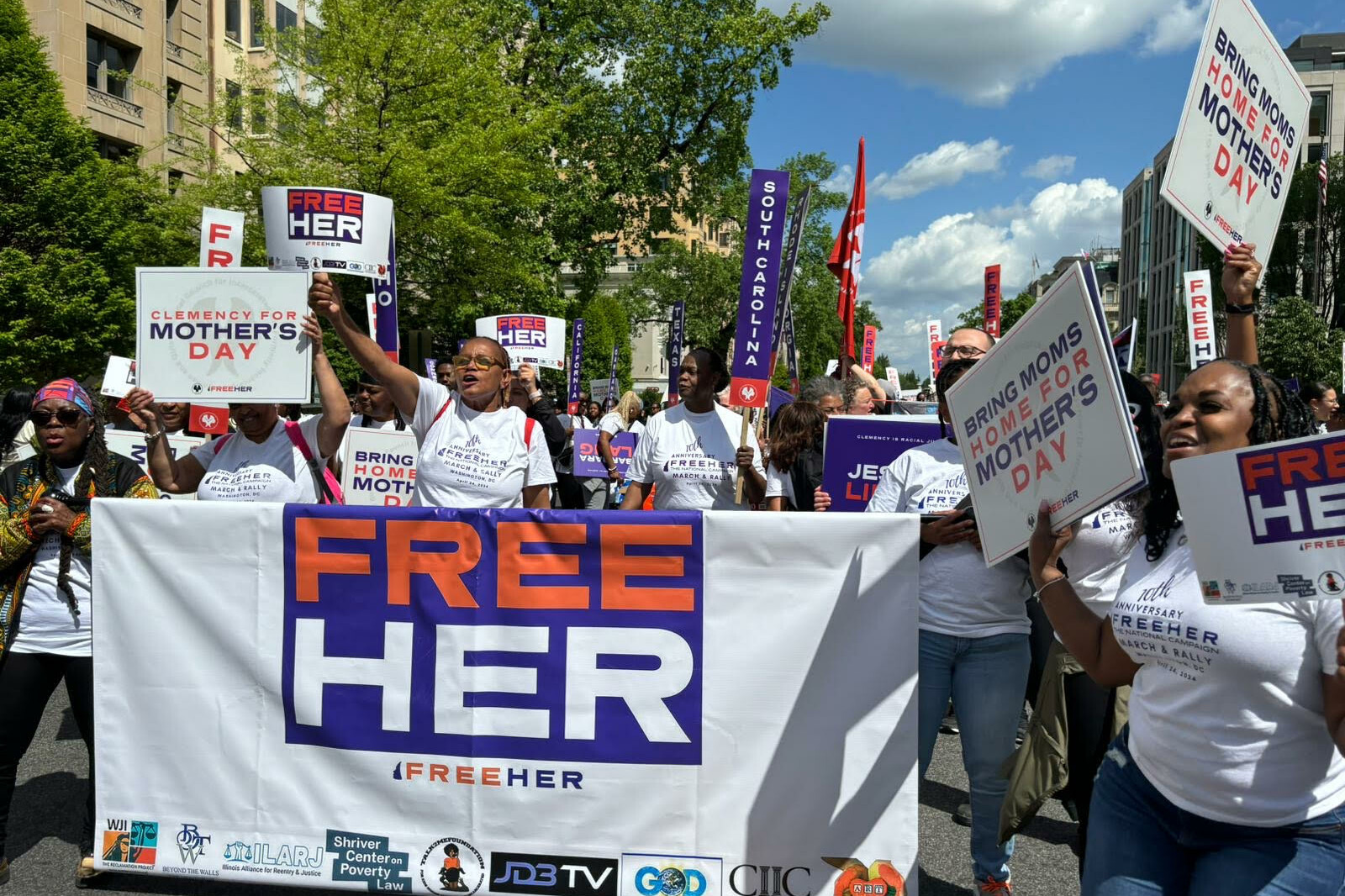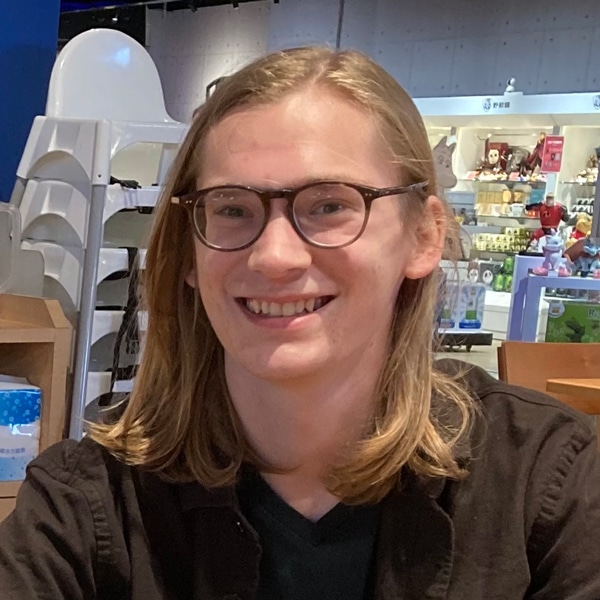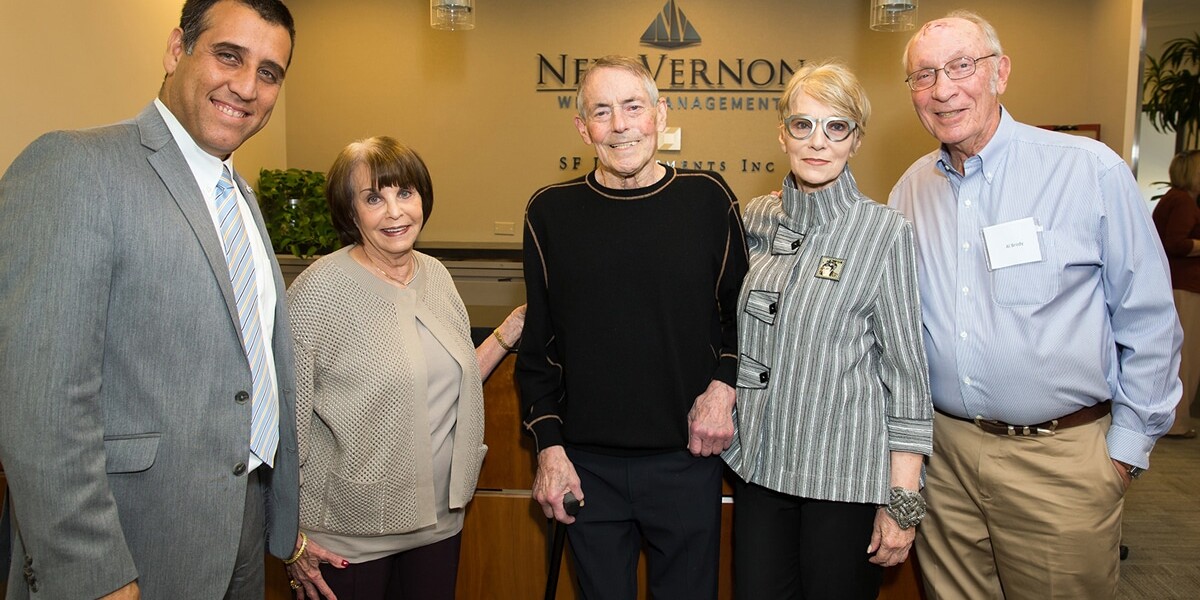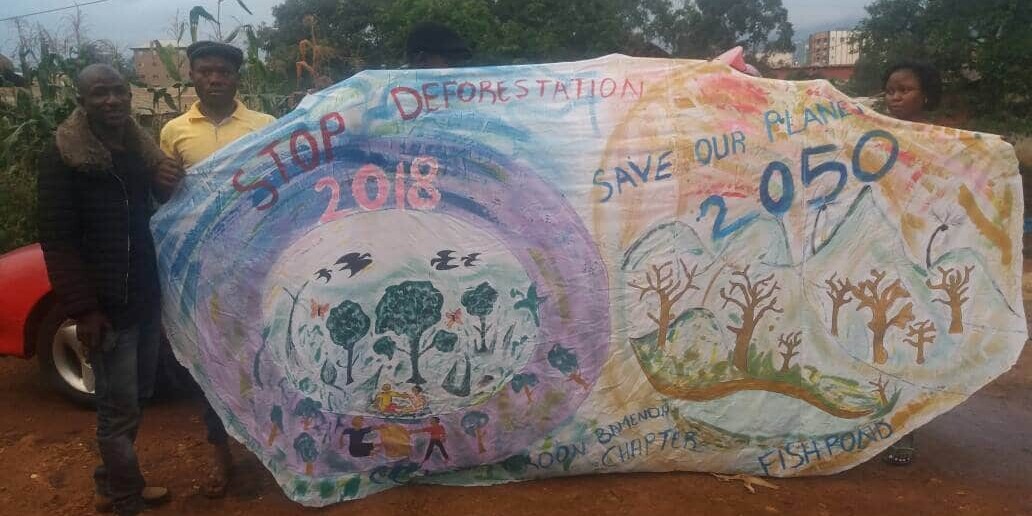When the Solitary Confinement Reform Act was introduced in the United States Senate on June 16, 2024, Nicole Davis appeared to give testimony. Nicole, a 2021 Chicago Peace Fellow and the Executive Director of the Talk2Me Foundation, has lived experience being incarcerated in Federal prison and in solitary confinement. As someone who has been directly impacted by the justice system, she knows firsthand how the system often discriminates against women and advocates for dignity, decriminalization, decarceration and to end harm to women and girls. Her recent trip to the Senate was preceded by her involvement in the 10th anniversary of the FreeHer March and Rally, an event aiming to end the incarceration of women and girls and shift resources into communities.
Marching for Clemency to be Granted to Incarcerated Women
The FreeHer March is a call for Federal and State officials across the country to grant clemency to incarcerated women and mothers. The campaign highlights that “80% of women in jails and 56% of women in prison are mothers to children under the age of 18. Most of these women are the primary caretakers of their families, women of color, and most of the mothers in jail are awaiting trial simply because they can’t afford bail.” As such the FreeHer March advocates not only for criminal justice reform, but also for womens’ rights, racial justice, and economic justice. By freeing mothers to return to their homes and ending the incarceration of women and children, more resources could be directed towards their communities rather than jails and prisons.
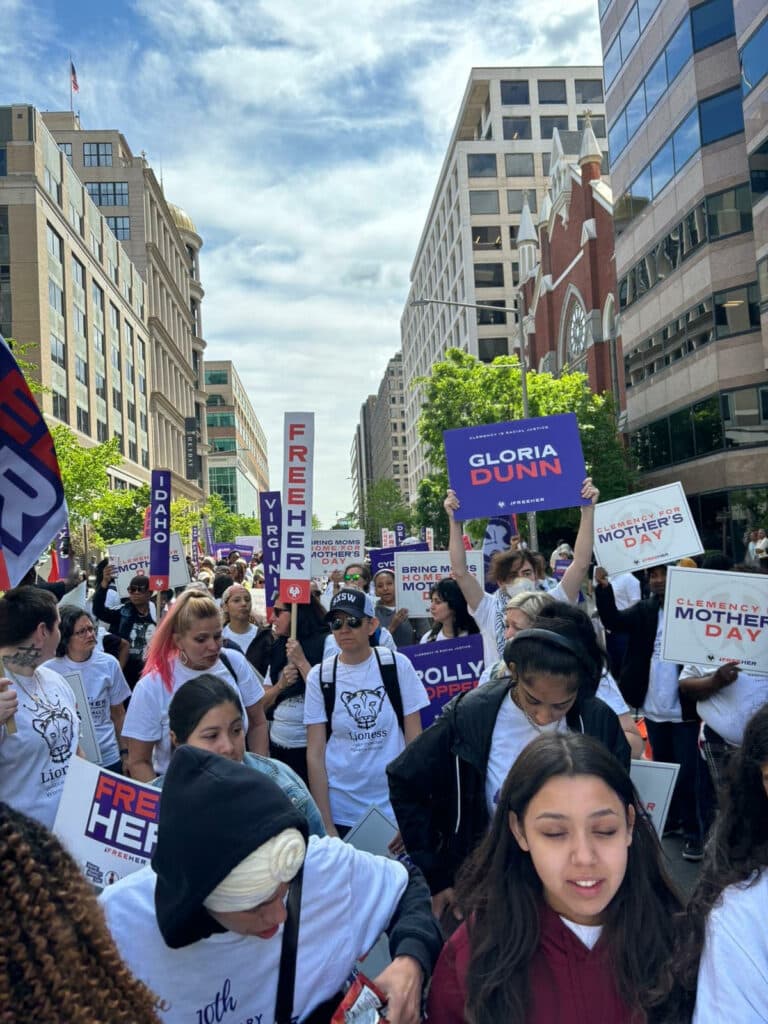
This year, the FreeHer March was attended by people across the United States and specifically highlighted the voices of those with lived experience. Nicole noted, “We wanted 50 states to participate so we asked all of our allies to participate in raising money to bring women from their states to D.C. so that they can hear our voices.” The Talk2Me Foundation worked alongside the Illinois Justice Project, Giving Others Dreams, Challenge II Change, and the Illinois Alliance for Reentry and Justice to raise funds and organize a trip that brought 77 women with lived experience to Washington D.C. for a day.
One talking point of the FreeHer Campaign is the underutilization of the presidential power of clemency as a tool for racial justice. They highlight that under the Obama Administration, 1,715 acts of clemency were issued, signaling a strong stance of racial justice. In contrast, President Biden has only issued 13 acts of clemency. As someone who appeared before President Biden prior to his election and lobbied for 100 women to be granted clemency, Nicole is disappointed in his lack of action: “President Biden said that in his first hundred days of office he would release 100 women, which did not happen. He released 13 incarcerated people, three women and ten men, but no one on our list. That’s why we were back there, to ask the president to stand on his word.” In demanding President Biden uphold his promise to issue clemency, the FreeHer campaign is calling not only for restorative action, but also for Biden to uphold his campaign promises and to be held accountable.
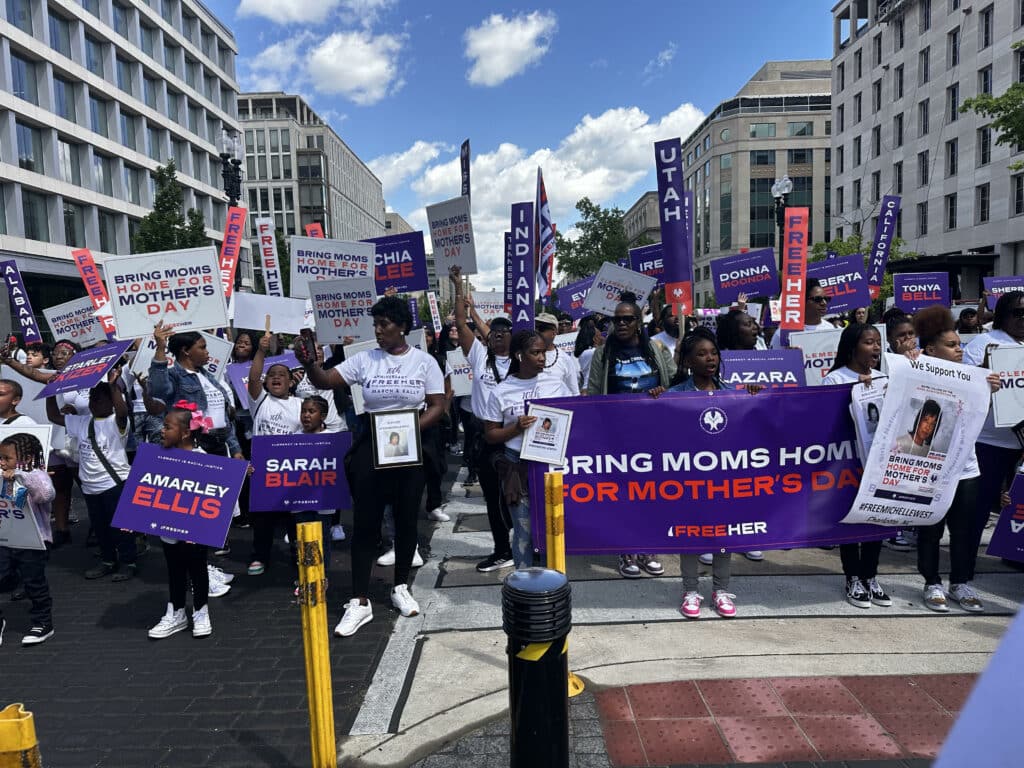
Testifying Before Congress on the Solitary Confinement Reform Act
As someone with lived experience, Nicole was also asked to appear before the U.S. Senate Committee on the Judiciary when the Solitary Confinement Reform Act was introduced on June 16. The bill was introduced by Senator Dick Durbin and Senator Chris Coons and “limits solitary confinement to the briefest term and under the least restrictive conditions possible because the overuse of solitary confinement threatens public safety, strains prison budgets, and violates fundamental human rights.” When the legislators behind the bill solicited testimonies from women with lived experience of solitary confinement, Nicole added her name to the list: “People with lived experience are having an opportunity not to have a seat at the table to discuss these bills because we are the closest people to what took place. They cannot sit and create these policies and bills without someone with lived experience being there.”
At the hearing, Nicole advocated for alternative programs to solitary confinement and emphasized that solitary confinement causes harm rather than improving health and safety. Speaking to her motivation to end the practice she says, “We need to end solitary confinement all around, no matter what a person’s charge may be. It’s devastating, it’s horrifying, it’s harm, you’re constantly inflicting harm on an individual and it’s wrong. You need to find alternative programs, you can not constantly just throw people in a 6’x9’ cage, it’s inhumane.”
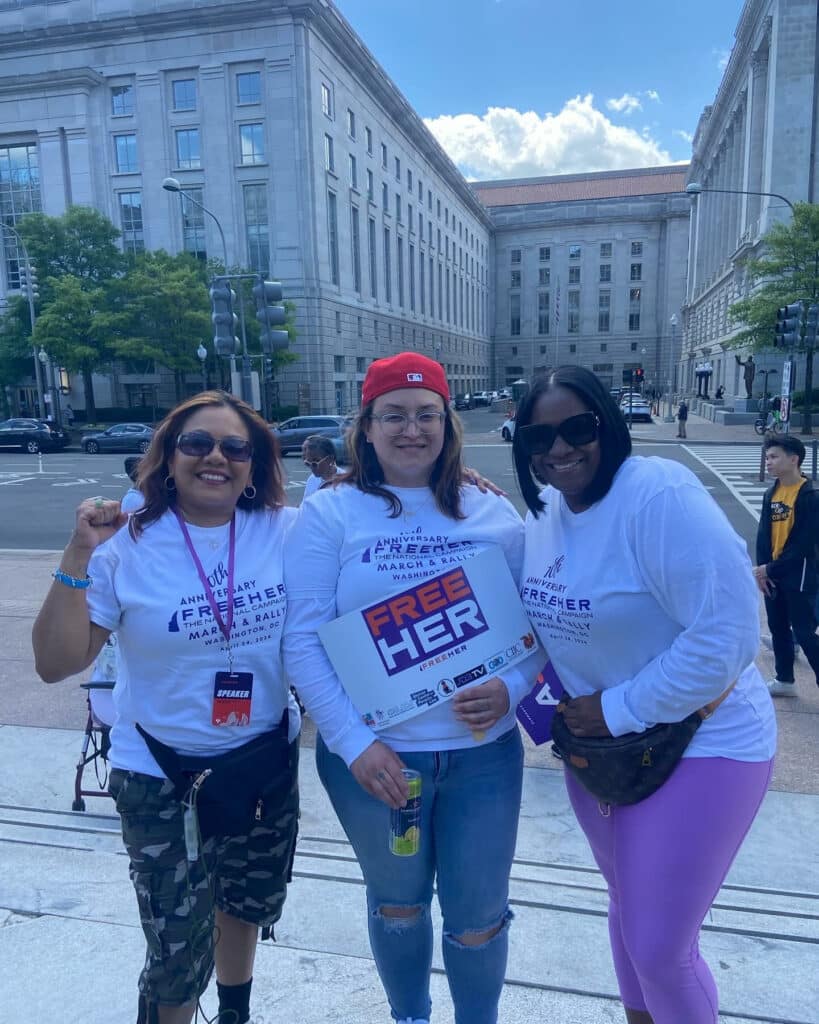
Nicole thinks that the FreeHer March and her testimony before Congress mark a change in how political systems are responding to womens’ rights and prison reform. Reflecting on the moment she notes, “Everyday is a struggle and I think they are hearing us now and listening. They are finally listening and they are listening to women. We have been left out for so long, it was all about men. So I think the route that we are going, and that we’re not giving up, I think that we’re restoring what we’ve been wanting for decades and decades.”
In the future, Nicole hopes to focus on creating more reentry programs for women. She notes how housing in particular is an important issue: “One big issue we have is housing for women who are coming home…I’ve been trying to raise funds to give the community the resources they need.” You can keep up with the work of the Talk2Me Foundation and Nicole Davis on their Facebook page and website.
